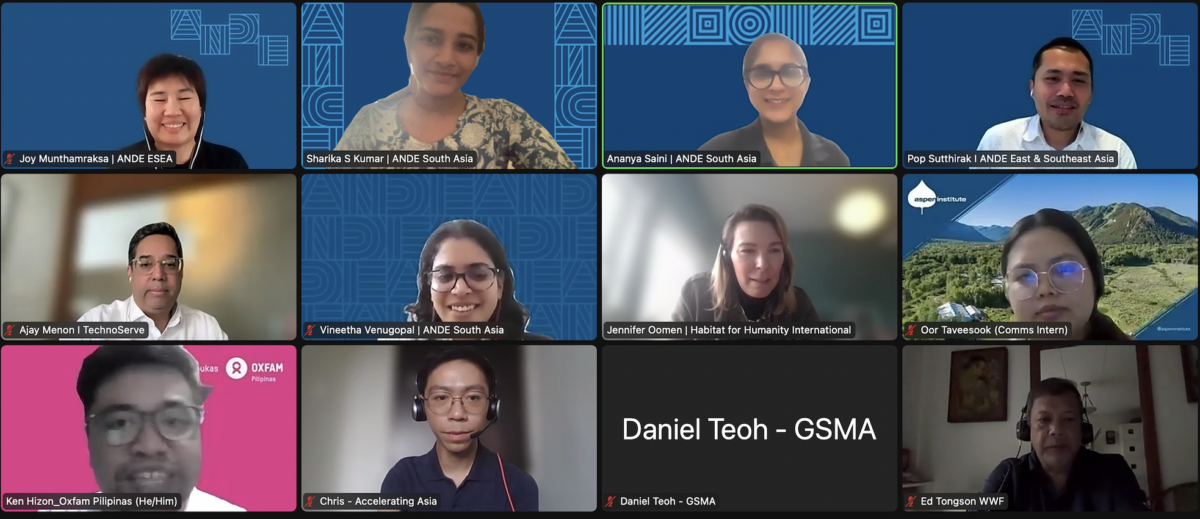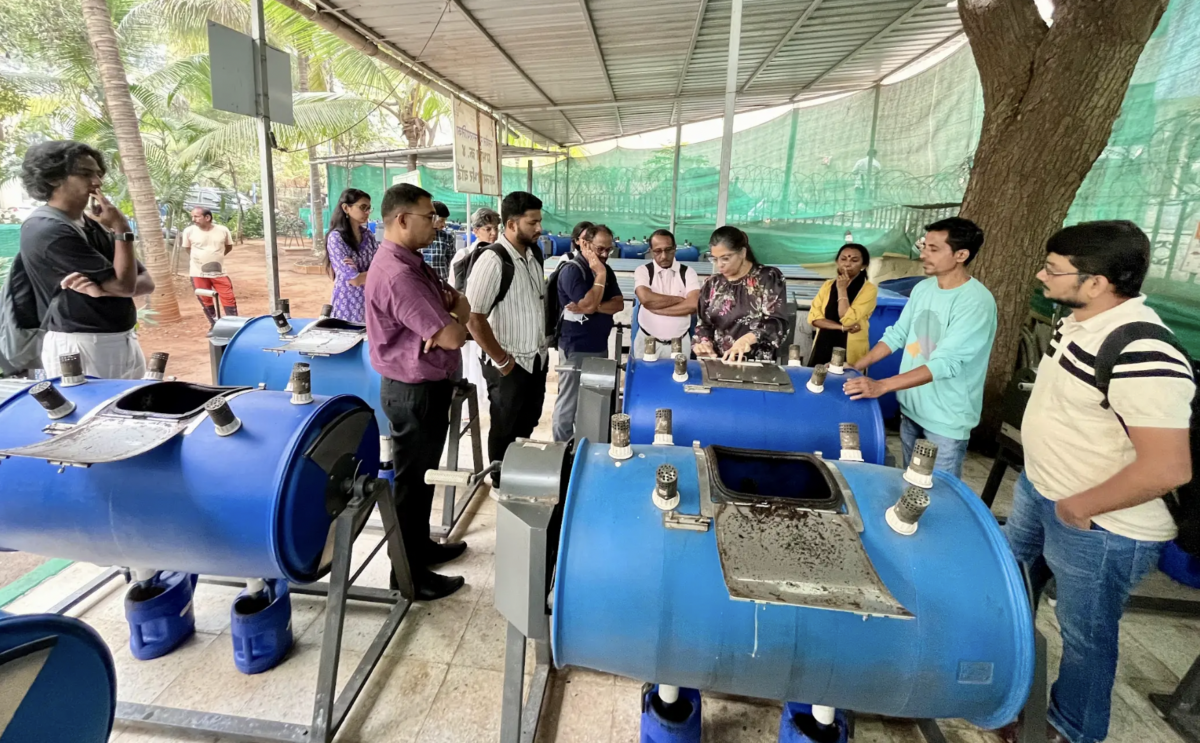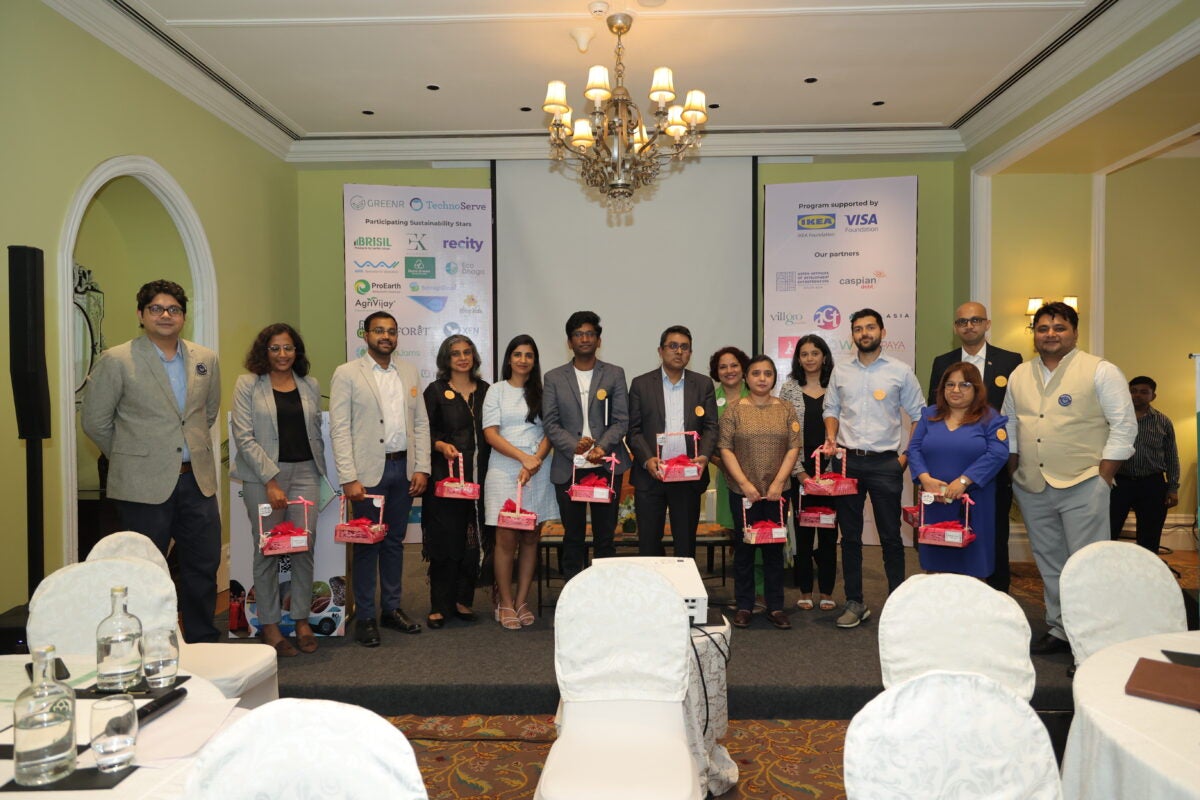Dive deep into Climate Conversations with our Co-Chair, Ajay Menon

What is the state of the sector according to you?
The pace of innovation is exciting! There are such unique startups in the green space that I stumble upon every so often. The emergence and rise of these startups underscores a growing societal focus on green innovations. The need of the hour, goes without saying! The COVID-19 pandemic heightened awareness of sustainability, prompting the launch of planet-friendly startups and initiatives by major corporations cross-cutting both supply and value chains. For instance, multinational giants like HUL and Nestle India have introduced eco-friendly products and packaging, reflecting a shift towards sustainable practices. Ecommerce giants like Flipkart are seeking to integrate with green startups providing solutions for not only environmentally friendly packaging but last mile delivery as well.
This momentum towards sustainability is further fueled by India’s ambitious goals for environmentally conscious development, backed by government initiatives supporting clean energy targets and organic farming. The climate sector is witnessing a surge in government-recognized startups tackling sustainability challenges, particularly in renewable energy, waste management and electric vehicles.
However, nothing comes without its set of challenges. Achieving large-scale sustainability goals requires significant investment, and bridging the financing gap remains a hurdle. ‘India is a price-sensitive market’, is a phrase we often hear, and so, there’s a need to also ensure green products and solutions are provided at a price point that is accessible for the consumer segment it is intended for, without compromising on functional superiority that helps meet carbon emission mitigation goals. Furthermore, while the sector is promising, there’s also a need to change people’s mindsets to drive consumption, thereby reducing the ‘intent-to-action’ gap in ‘green consumerism’.
How do you see the C&E Learning Lab as an opportunity for the ecosystem?
The purpose of the C&E Learning Lab is essentially for capacity building of green agents of change. From understanding how to identify and measure carbon emissions to fundraising, to mobilizing youth in supporting the green sector, studying effective public & private partnership models, it is best done in the form of a C&E Learning Lab that enhances knowledge, sharpens skills to expedite impact.

What are TechnoServe’s ongoing programs supporting entrepreneurship and how can others collaborate with you?
TechnoServe partners with large corporations, multilateral institutions, and governments to support entrepreneurship in different regions around the world. With global corporate and foundation support, the approach is to meet the specific needs of micro and small green entrepreneurs, help them find new markets, provide efficient upskilling support, and access to fairly priced financing. This is exactly what we do via the Greenr Sustainability Accelerator Program; we enable green startups to get closer to their goals with our one-on-one advisory (both strategic and tactical), and market linkages, facilitating fundraising for them and enabling them to network with peers. We are motivated with the opportunity to bring transformative change to the sustainability sector in India by helping a sizable base of green startups to scale on both the revenue and environmental impact fronts. The Greenr Sustainability Accelerator Program aims to mentor ~400 green SGBs by 2026, in India.

Globally, promote youth economic opportunity by helping young entrepreneurs in rural Africa start new businesses. We support established enterprises to accelerate their growth and impact in Latin America, work with food processors in Africa to expand their business, help small business owners source more products from small-scale farmers, and small shop owners in the micro-retail sector to improve their businesses and profits.
All our programs are focused on benefiting not just the entrepreneurs but also the end user, local workers, women and youth among other stakeholders.
Our entrepreneurship portfolio is based on four key pillars:
- Careful Adaptation: TechnoServe carefully adapts its methodology to better serve each community of entrepreneurs based on factors like their context, gender, age, stage in their growth cycle, and personal appetite for growth.
- Market-driven approach: We support entrepreneurs in finding untapped market opportunities and developing growth strategies to quickly and affordably capture these opportunities.
- Effective Capacity Development: Recognizing that the entrepreneurs we support are busy, hardworking individuals, we aim to provide the most relevant and effective training.
- Rigorous measurement and continuous learning: We currently implement nearly 30 enterprise development programs in more than 20 countries. By adhering to rigorous measurement, we strive to collectively learn and improve each program to be more effective and efficient.
Speaking of collaboration, we are pleased to connect with like-minded partners and determine how we can effectively work together.

What advice do you have for aspiring entrepreneurs looking to create environmentally conscious businesses?
Starting a business, and a green one at that, can come with its own set of unique challenges. There are immature markets, an ‘Intention-Action’ gap in green consumerism, inadequate access to finance, and an inability to quantify the environmental impact. But we’re here for a reason. Many green businesses started because the entrepreneurs wanted a safer future for their children – and that’s good enough motivation to keep going. Here are a few tips for aspiring green entrepreneurs:
- Consider your interests and identify a product or service that fills a gap in the sustainable market. Look for areas where eco-friendly alternatives are lacking or can be improved.
- Figure out a way to focus on the impact and how your business will help in lessening the burden on the planet.
- It is critical that you validate your business model, find the right product-market-fit, take calculated risks in scaling, build adequate feedback loops to get better at providing the right product or service solution.
- Be upfront about your sustainability efforts and the impact of your products. Highlight certifications and eco-friendly materials you’re using for your product/ service.
- Look for sustainability within sustainability. Find suppliers who prioritize eco-friendly practices, like using recycled materials or organic ingredients, and reduce packaging; find creative uses for byproducts, and explore options like renewable energy sources and energy-efficient equipment for your workspace.
- Engage your audience by educating customers on the environmental benefits of choosing your business and how they can participate in sustainable living.
- Many organizations support green businesses. Look for local associations or online resources that offer guidance and networking opportunities.
“Remember that being environmentally conscious is a journey, not a destination. Continuously strive to improve your practices and stay up-to-date on new sustainable technologies and solutions.”
